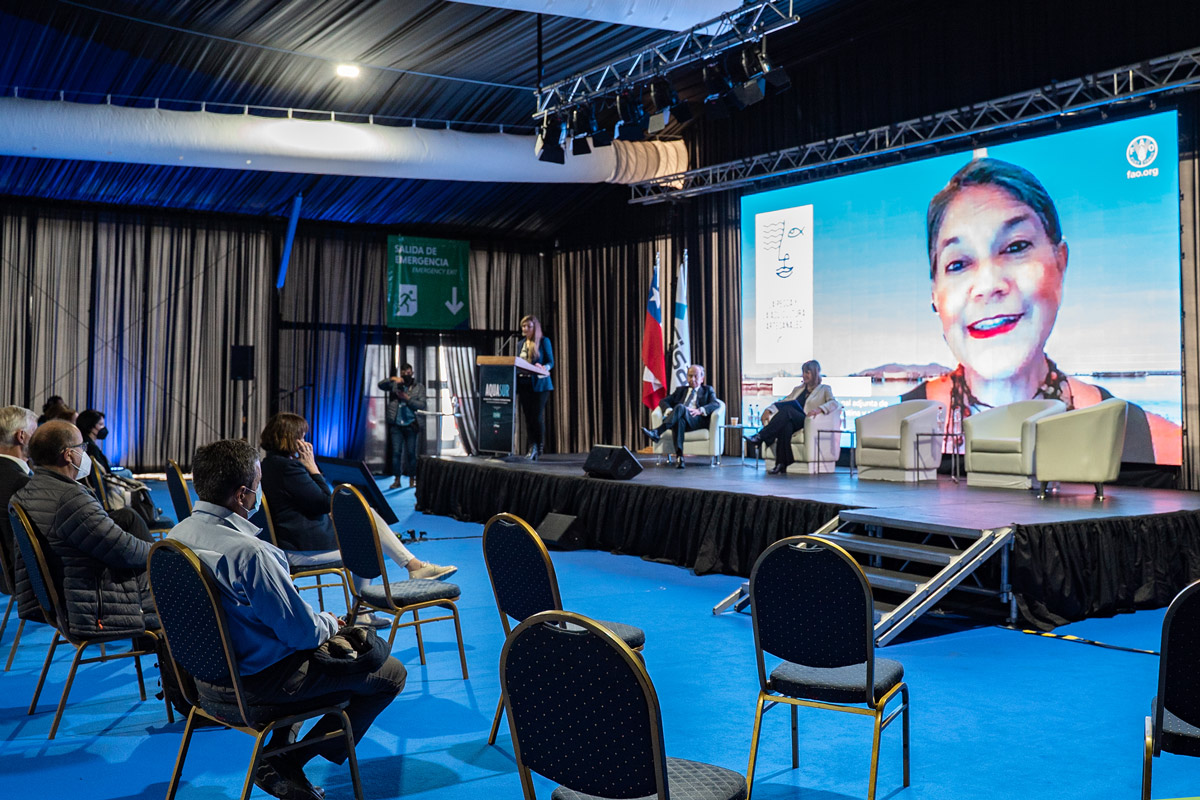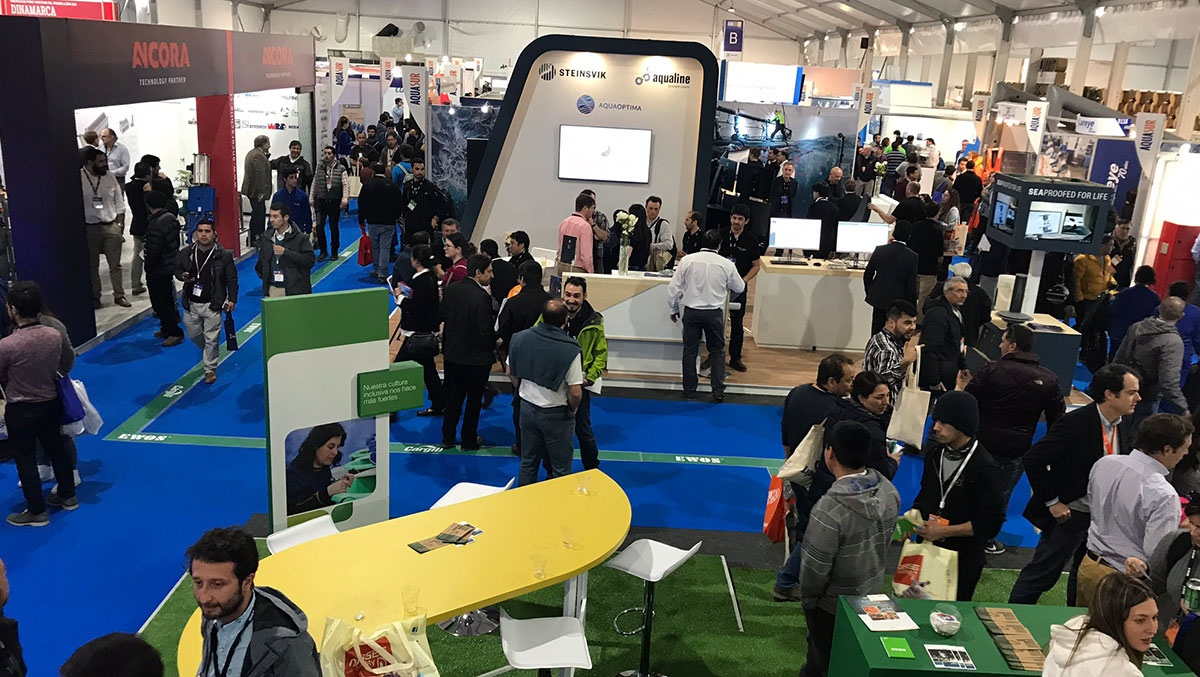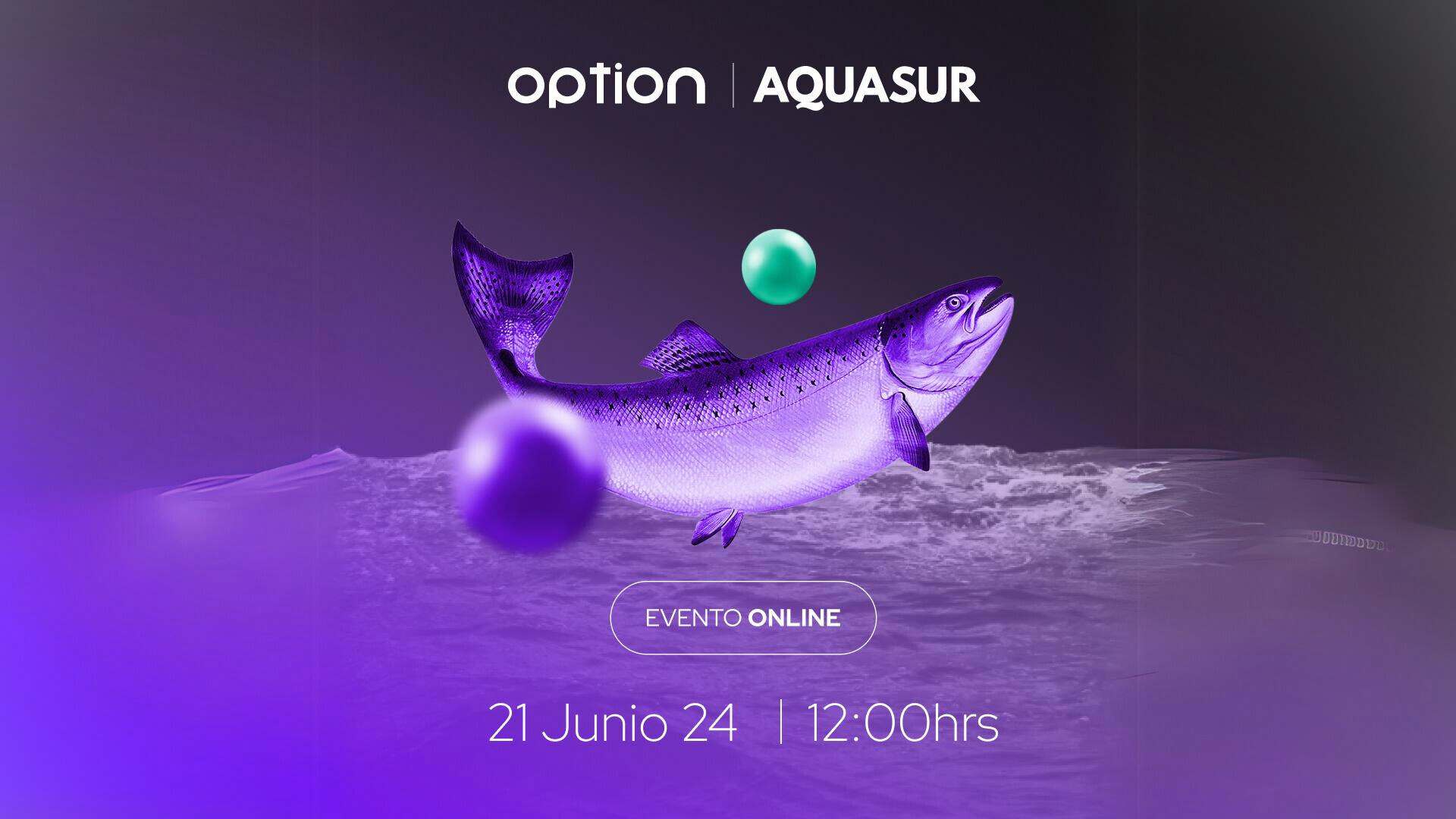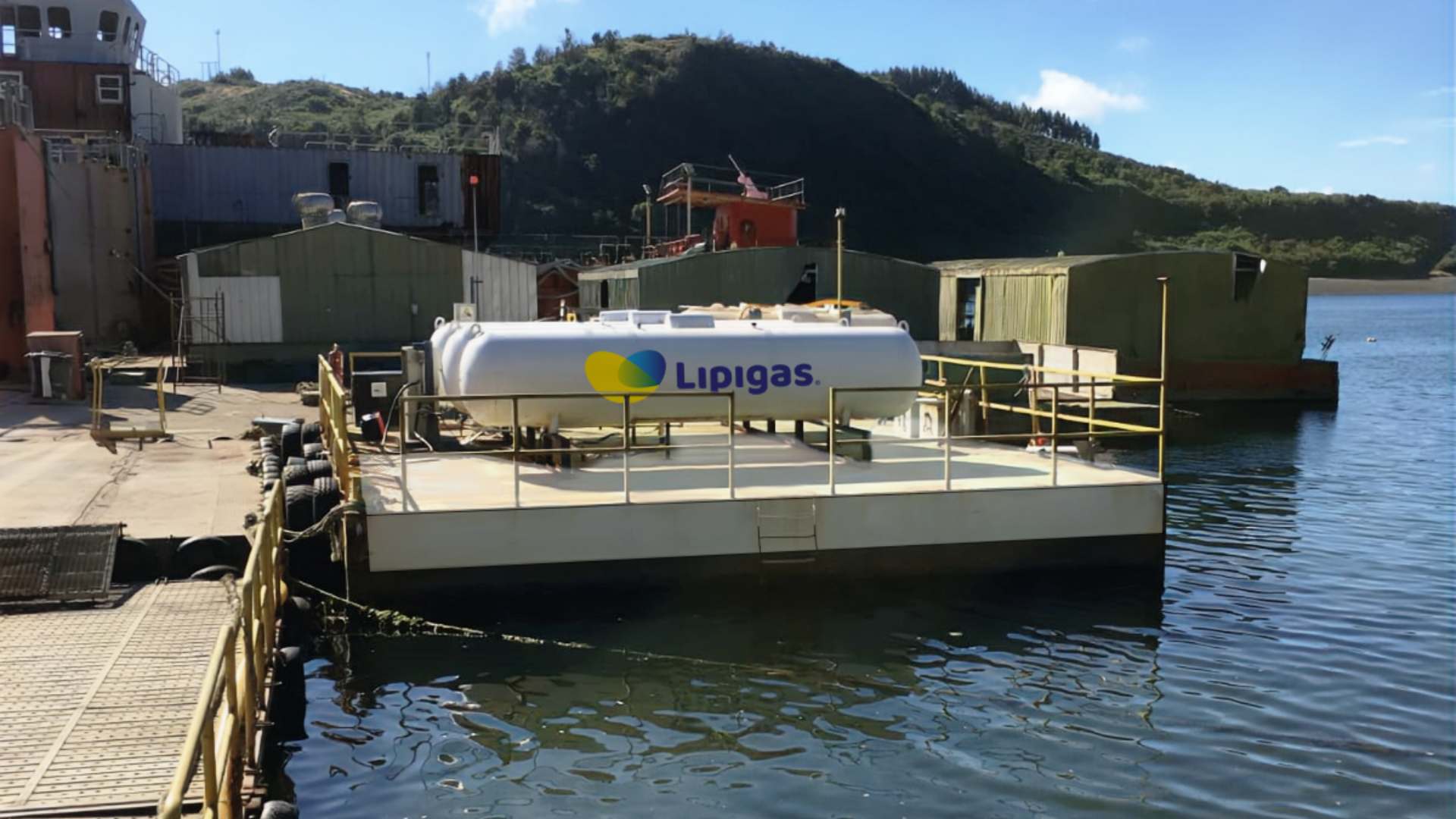
The international congress presented the challenges of the aquaculture sector, its future development and the new technologies needed to achieve a more sustainable industry. At the event, the Undersecretary of Fisheries and Aquaculture, Alicia Gallardo, announced the beginning of the International Year of Artisanal Fisheries and Aquaculture. Puerto Montt, March 3, 2022 – The Undersecretary of Fisheries and Aquaculture, Alicia Gallardo, together with Fisa’s Corporate Affairs Manager, Rodrigo Lobo; the Deputy Director of the Bill and Melinda Gates Foundation, Samuel Thevasagayam; and the Deputy Director of the Food and Agriculture Organization of the United Nations (FAO), Audum Lem, opened the “AquaSur International Congress Blue Trilogy: Ocean, Aquaculture and Society, feeding the future”, sponsored by DNB Bank. Within the framework of AquaSur, Undersecretary Gallardo took advantage of the event to launch the International Year of Artisanal Fisheries and Aquaculture (IYAFA 2022), proclaimed by the United Nations (UN), which seeks to promote sustainability through public policies and programs. “Today we have inaugurated the International Year of Artisanal Fisheries and Aquaculture, through the relationships between the seven principles disseminated by FAO and our Undersecretariat with large-scale aquaculture. I believe that the challenge is to bring together large-scale aquaculture with small-scale aquaculture and artisanal fishing, and thus fulfill the objective of sustainable development, food security and to be able to take these important fisheries and aquaculture resources to every home in the world”, said Undersecretary Gallardo. During the inauguration, Fisa’s corporate affairs manager, Rodrigo Lobo, emphasized that “the International Year of Aquaculture and Artisanal Fisheries reveals the importance of aquaculture in global food security and the relationships that must exist between the various actors in the use of the sea, to face the challenges of the future and develop more sustainable systems and economies,” said Rodrigo Lobo. The director of the Bill & Melinda Gates Foundation, Samuel Thevasagayam, said that “over the past decades, the aquaculture sector has been the food production sector with the highest growth rate in the world. But we need this development to continue in a sustainable and sustainable way in order to guarantee the supply of fish for future generations. FAO’s regional representative for Latin America and the Caribbean, Eve Crowley, emphasized that “people involved in aquaculture and artisanal fisheries contribute to the development of the sector by contributing to its sustainable development significantly to food security and nutrition, poverty eradication, and the sustainable use of natural resources. For this reason, it is crucial to raise social awareness and take action to provide support to strengthen their capacities and incorporate them into the territorial development agendas of each country. According to FAO figures, aquaculture and artisanal fisheries generate more than 2.8 million direct jobs and three times as many indirect jobs in Latin America and the Caribbean. Of these, almost 90% are linked to artisanal fishing and at least 16% of the jobs associated with extractive fishing are occupied by women. Themes of the International Congress During the international congress, the following topics were addressed: Sustainability and innovation; Technology and human capital: the changes to come; and Well-being and health, a One Health perspective. In the first module of the congress, “Sustainability and Innovation”, Marcio Castro, Senior Fisheries Officer for International Trade at FAO, spoke about world production, trade and recent trends in fishery and aquaculture products, and the transformations for a sustainable ocean economy. “Aquaculture continues to play a major role and remains a fundamental pillar in every country’s economy. Our projection is that total fish production will grow to 204 million tons in 2030, increasing by 15% compared to 2018. To maintain it, sustainable aquaculture development and effective fisheries management will be key,” Castro said. In module 2 “Technology and human capital: the changes to come”, Katie Thomas, Co-founder & COO of Blue Lion Labs, spoke about the impact and objectives of sustainable development; and the development of new agricultural technologies in the world. She also provided an analysis of the development and innovation of the industry and its advantages. “Within the aquaculture industry, there is a technological integration that continues to change. Today we have sensors that allow us to verify parameters such as water quality, and there is the integration of exploration robots to visualize the fishing process and the movement of nets underwater. Little by little, technology is being automated with better tools for the development of the aquaculture and fishing market,” said Thomas. This panel also discussed topics such as the performance of protein producers in a world that demands sustainability, climate change and the human factor necessary for success. In the third module, welfare issues were discussed, where the presentations are oriented to the contribution of aquaculture to human welfare and the protection of natural resources; blue foods and how to contribute to achieve more equitable and sustainable food systems; how blue foods can contribute to achieve more equitable and sustainable food systems and finally there will be the presentation on PROBLUE: healthy oceans, healthy economies and healthy communities.


 Related News
Related News AquaSur advances preparations for its March 2022 version
AquaSur advances preparations for its March 2022 version
 Innovative Aquaculture: Presenting a Plan to Apply Generative Artificial Intelligence in the Industry
Innovative Aquaculture: Presenting a Plan to Apply Generative Artificial Intelligence in the Industry
 Gas alternatives as efficient and sustainable energy solution for aquaculture
Gas alternatives as efficient and sustainable energy solution for aquaculture
